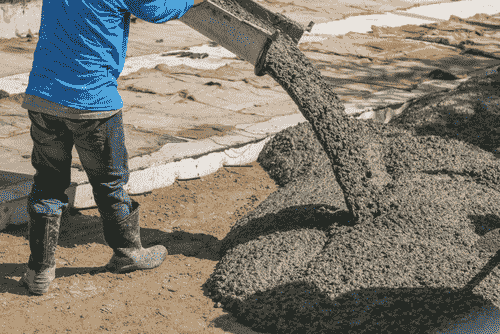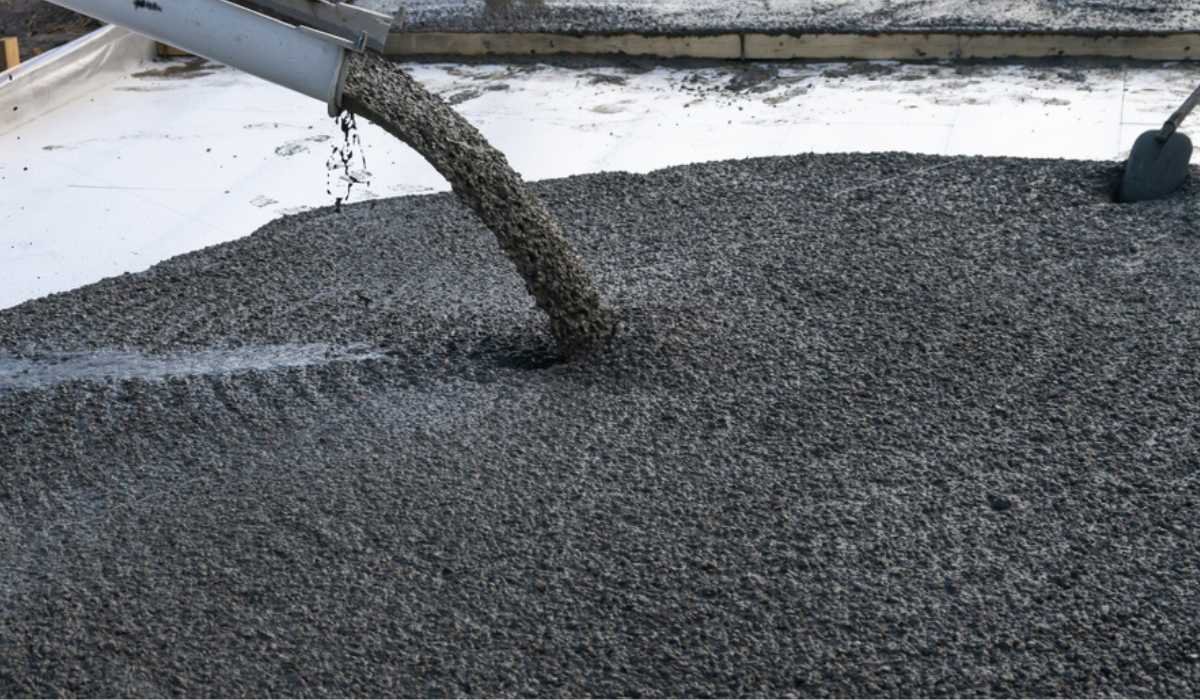Unveiling the Eco-Friendly Advantages of Utilizing Recycled Concrete in Sustainable Building And Construction Practices
In the realm of lasting building practices, the utilization of recycled concrete stands as an essential yet commonly undervalued resource. Beyond its traditional applications, recycled concrete offers a myriad of green benefits that expand far past the confines of conventional construction products.
Ecological Benefits
By integrating recycled concrete into building practices, there is a significant decrease in the need for brand-new raw materials, leading to preservation of all-natural sources. In addition, the use of recycled concrete diminishes the quantity of waste being sent to land fills, thus decreasing environmental pollution and minimizing the pressure on garbage dump abilities (Concrete).

Additionally, the production of traditional concrete is a significant resource of carbon exhausts because of the energy-intensive process of cement manufacturing. In comparison, recycled concrete has a reduced carbon footprint as it minimizes the need for brand-new concrete manufacturing. This decrease in carbon discharges contributes to mitigating environment modification and supports sustainable building and construction practices. In general, the environmental benefits of using recycled concrete are significant and play an essential duty in advertising green building methods.
Cost-Efficiency
Attaining cost-efficiency is a paramount consideration when examining the usage of recycled concrete in building projects. One of the crucial benefits of making use of recycled concrete is its cost-effectiveness contrasted to conventional concrete. The production of recycled concrete includes much less energy and resources as it utilizes existing products, lowering the general project expenses significantly. Furthermore, the schedule of recycled concrete in your area can even more decrease transportation costs, making it a more cost-effective choice for building projects.
Furthermore, using recycled concrete can cause cost savings in land fill expenses by drawing away concrete waste from disposal websites. This not only lowers the ecological influence yet additionally removes the prices linked with waste elimination. Furthermore, the toughness and efficiency of recycled concrete approach traditional concrete, making certain that price financial savings do not endanger the top quality of the building and construction.
Longevity and Toughness
Recycled concrete deals similar, if not superior, resilience and strength residential or commercial properties to typical concrete - Concrete. With advancements in processing methods and top quality control, recycled concrete can satisfy or go beyond the performance criteria of conventional concrete.

Waste Reduction
When it comes to using recycled concrete, waste reduction is a vital benefit that contributes considerably to ecological conservation. By including recycled concrete into building and construction tasks, this waste is repurposed and diverted from land fills, reducing the overall ecological impact of construction tasks.
Additionally, the usage of recycled concrete can lead to set you back savings for construction tasks, as it is often a lot more budget friendly than sourcing and carrying brand-new products - Concrete. In final thought, waste reduction through the usage of recycled concrete is an important part of sustainable construction techniques that profits both the construction and the atmosphere market as a whole.
Energy Conservation
Power preservation is a vital facet of lasting i loved this construction practices, intending to lower the overall power consumption related to building procedures and materials production. When it involves using recycled concrete in construction, considerable energy cost savings are achieved contrasted to conventional concrete production. The process of creating recycled concrete entails squashing and reusing existing concrete products, this post which takes in much less power than mining, processing, and transporting basic materials for brand-new concrete manufacturing. Additionally, using recycled concrete can assist reduce the need for virgin aggregate, further minimizing the energy-intensive removal and processing of natural deposits.
Final Thought
To conclude, the usage of recycled concrete in lasting building and construction practices uses various environmental advantages, cost-efficiency, resilience, stamina, waste decrease, and power preservation. By incorporating recycled concrete into construction tasks, we can add to a much more eco friendly and lasting future. It is necessary for the construction market to prioritize using recycled materials to aid reduce the ecological effect of building tasks.
One of the crucial advantages of utilizing recycled concrete is its cost-effectiveness compared to conventional concrete.Furthermore, the usage of recycled concrete can lead to savings in landfill expenses by drawing away concrete waste from disposal sites. The longevity and efficiency of recycled concrete are equivalent to standard concrete, ensuring that cost savings do not jeopardize the high quality of the building and construction.
:max_bytes(150000):strip_icc()/in-depth-look-at-concrete-flooring-1314684-02-8fdb599f92a747ed94ef5b96110abfc1.jpg)